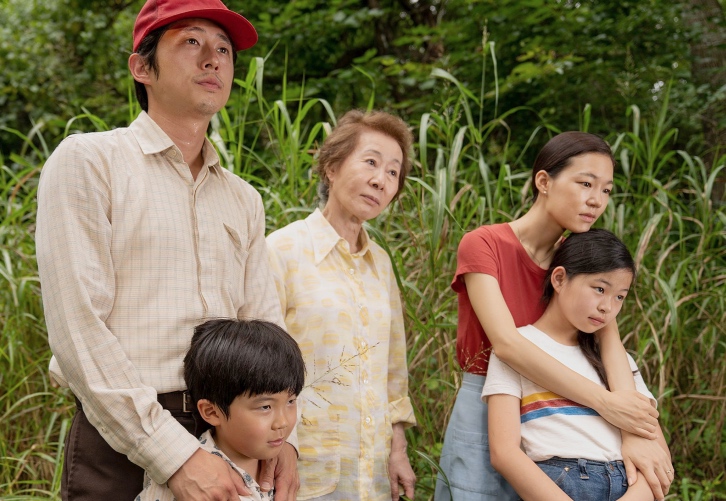
By MARTHA NAKAGAWA, Rafu Contributor
First of three parts
They rallied from all across the United States — from Washington, D.C., New York,? Oklahoma, Pennsylvania, Illinois, Washington State to California.?
Tsuru for Solidarity members rose up to protest police brutality and called for an end to all unjust detention during a two-day virtual conference on June 6-7. Tsuru is a non-violent, direct-action organization that has been advocating for the end to detention sites and supporting immigrant and refugee communities that are being targeted by racist U.S. policies.?
Had the COVID-19 pandemic not shut down the country, Tsuru had planned a protest rally in Washington, D.C. the weekend of June 6-7, with plans to hang more than 125,000 paper cranes made from people all across the world on the White House fence. However, once the nation went into lockdown, organizers quickly switched to a virtual conference that included communities from all across the country.?
Tsuru organizers also made a last-minute program change to address the demands of thousands rallying across the U.S. in protest against police brutality following the death of George Floyd at the hands of a white Minneapolis police officer on May 25.?
The virtual conference, according to Tsuru, had 1,000 registered attendees and more than 15,000 viewers.?
Last year, Tsuru had held a protest rally in front of the Dilley migrant detention center in Texas, calling for the end to the family separation policy and to close down detention centers that were indefinitely imprisoning immigrants in crowded and unsanitary conditions.?
This was followed by two protest rallies at Fort Sill in Oklahoma, a former Department of Justice camp that had imprisoned Issei during World War II and a former prisoner-of-war camp for the Comanches and Chiricahua Apache tribes. In 2019, it was slated to be converted into a migrant detention prison for 1,400 asylum-seeking children. Tsuru networked with a number of local organizations and together they successfully convinced an Oklahoma senator to re-examine the plan.?
As in all Tsuru rallies, the virtual conference opened with a tribal ceremony led by Ty Defoe to recognize the indigenous tribes that had inhabited Turtle Island before it was colonized by Anglo Saxons and renamed the United States of America. ?
The overriding theme repeated by speakers from the African American, Latinx, Indigenous, as well as Asian American communities was a call to defund not only law enforcement agencies but also the Immigration and Customs Enforcement (ICE) and the Customs and Border Patrol (CBP) and to reallocate these funds to education, job training, healthcare and various social service programs.?
Several also called for reparations to African Americans, whose ancestors had been forcibly brought to the U.S. as slaves.?
A striking feature of the conference was the number of female leaders heading these struggles. All agreed that this was a marathon and not a sprint, and real change was not going to come overnight.?
The virtual conference was hosted by Lisa Doi, Dr. Satsuki Ina, Leslie Ishii, Mike Ishii, Lori Matsukawa and Gabby Viera, advocacy specialist with Detention Watch Network. There were also many volunteers behind the scenes, including Tsuya Yee, who managed the real-time comments being sent, and On Point Studios, which managed the technical aspect.?
Sen. Mazie Hirono of Hawaii, who keynoted the virtual conference, said she was horrified when she saw peaceful protesters at the plaza near Lafayette Park get tear-gassed on June 1 just so that the president could have a photo opportunity in front of St. John’s Church. Rather than calm the nation, Hirono felt this president was fanning the flames of divisiveness and ignoring the thousands of demonstrators, not only in the U.S., but globally taking to the streets and demanding justice for George Floyd and an end to police brutality and racism.?
She encouraged viewers to vote if they cared about the increase in hate crimes against Asian Americans after the president and his staff started calling the COVID-19 virus the “China virus” and the “kung flu”; if they cared about how the administration was addressing the pandemic, which is disproportionately impacting communities of color; and if they cared about how the administration was showing little urgency in passing another COVID-19 bill to help working-class people.?
“If you care about all those things, then the most fundamental thing you can do, as an individual, is to vote,” she said. “If you would like to see four more years of this chaos, this race-bating, incompetent, corrupt president and administration, then don’t vote. But if you want to make that change, you have to vote. That is the most important message I have, aside from, yes, we need to raise our voices, very strongly, against the kind of racism, divisiveness that is occurring in our country.”?
Hirono noted that, like Tsuru for Solidarity, she has a crane-folding project in her office that has attracted people from all walks of life, from four-star generals to ambassadors to Deferred Action for Childhood Arrivals (DACA) recipients. ?
“When we fold a 1,000 cranes at least, then the **kami-sama,** the gods, will grant us a wish, and our wish is truly for a country that comes together,” said Hirono, who encouraged the public to send folded cranes to her office.?

Rep. Judy Chu of Pasadena, chair of the Congressional Asian Pacific American Caucus, introduced the Shut Down Child Prison Camps Act after visiting a detention center where she found children scared and alone after being separated from their families. She said she’ll never forget the image of children being marched single-file with a guard in front and back since the children were not allowed to walk around freely. She likened these detention centers to the World War II camps where Japanese Americans were incarcerated.?
“As COVID-19 hits the detention centers, families are still being torn apart at the border with parents being asked to choose between staying with their children or giving them a chance for asylum at the risk of never seeing them again,” said Chu. “We know from the experiences of Japanese imprisonment that locking up innocent families is traumatizing, and we know it is wrong and with your help we can end this.”?
Rep. Mark Takano of Riverside said he was proud to see that Asian Americans and Japanese Americans, in particular, were not remaining silent at this time.?
“The domination, the militarized show of force against peaceful protesters is not the only thing that is wrong with this government,” said Takano. “There’s a whole long list of terrible ways in which this president governs – the separation of children from their families at the border and the detention of these children is still happening. It’s not gone away, and we as a community know the suffering and the damage that is done when people who are fleeing oppression and danger cannot find refuge in a country that has turned anti-immigration because of sentiments like our president so we have to push back.?
“We can’t remain silent. We must oppose policies of this president and say that the detention and separation of children must end and no child should be kept in detention. We must remain vigilant. We have to keep calling it out. We have to keep resisting.”?
Carl Takei, Tsuru co-founder and ACLU attorney based in Washington, D.C., made the direct connection between law enforcement and why black men such as George Floyd, Michael Brown, Philando Castile and any number of people of color are disproportionately targeted by officers.?
“Policing is not a neutral institution,” said Takei. “It protects the interests of those who have societal power, often at the expense of those who do not.”?
He noted that the country’s first police department was founded in Charleston, S.C. in 1783. The purpose of the all-white male staff was to control the black slave population.?
“It was a slave patrol,” said Takei. “That pattern of police enforcing racist social structure continued after the end of slavery, in the Jim Crow era, during the destruction of Black Wall Street in Tulsa, Okla., and continued through the War on Drugs and continues today.”?
 ‘Resistance at Tule Lake’ Set for National Broadcast Premiere
‘Resistance at Tule Lake’ Set for National Broadcast Premiere
 Historic Oscar Nods for Yeun, Zhao
Historic Oscar Nods for Yeun, Zhao
 South Bay Small Business of the Year
South Bay Small Business of the Year
 Twenty Years Later, Images of 9/11 Still Haunt Survivors
Twenty Years Later, Images of 9/11 Still Haunt Survivors
 California Bonsai Society’s 62nd Bonsai Exhibition
California Bonsai Society’s 62nd Bonsai Exhibition
 Property Owner, Smoke Tokes Back in Court; Firefighter Captain Files Lawsuit in 2020 Incident
Property Owner, Smoke Tokes Back in Court; Firefighter Captain Files Lawsuit in 2020 Incident
 East West Players Launches Virtual 55th Anniversary Season, ‘Between Worlds’
East West Players Launches Virtual 55th Anniversary Season, ‘Between Worlds’
 Monica Embrey Named Senior Associate Director at Sierra Club
Monica Embrey Named Senior Associate Director at Sierra Club
 Japanese Festival in Long Beach
Japanese Festival in Long Beach
 Newsom Vetoes Bill That Sought to Block Nursing Home Evictions During Pandemic
Newsom Vetoes Bill That Sought to Block Nursing Home Evictions During Pandemic
 Takarabune Lecture at Japan House Los Angeles
Takarabune Lecture at Japan House Los Angeles
 Google Doodle Honors ‘First Lady of Billiards’
Google Doodle Honors ‘First Lady of Billiards’
 JANM Mourns Passing of Professor Lloyd Inui
JANM Mourns Passing of Professor Lloyd Inui
 Heroic move past new
Heroic move past new
 ‘The Night Is Short, Walk On Girl’ to Be Screened Next Week
‘The Night Is Short, Walk On Girl’ to Be Screened Next Week
 JACCC Offers Video Tribute for 3/11 Anniversary
JACCC Offers Video Tribute for 3/11 Anniversary
 Hayward Honors Day of Remembrance
Hayward Honors Day of Remembrance
 'The Art and Activism of Renee Tajima
'The Art and Activism of Renee Tajima
 Hoshigaki Workshop This Sunday at Gardena Valley JCI
Hoshigaki Workshop This Sunday at Gardena Valley JCI
 Musco Center Presents ‘Artists in Response to Incarceration’ Online
Musco Center Presents ‘Artists in Response to Incarceration’ Online
Best Amazon Big Spring Sale scanner deals: ScanSnap, Epson, and moreWordle today: The answer and hints for March 31Calm Strips are a hot new fidget tool. Here's why.Fortify your finances: A tactical guide to shielding against scams in 2024NCSU vs. Duke basketball livestreams: How to watch liveElon Musk says Grok AI will be available to premium X users 'later this week''3 Body Problem' creators on *that* horrifying scene from episode 5Best Amazon Spring Sale 2024 printer deals: Get an HP allNCSU vs. Marquette basketball livestreams: How to watch liveBest tablet deal: Get the Samsung Galaxy Tab S9 FE for $100 off at Amazon Trump's behavior is so awful he wouldn't even qualify for actual adult day care Webb telescope just made a surprising discovery because of a mistake Definitely split up the Joy Donald Trump had a very awkward encounter with a T. rex Twitter admitted to a big mistake Exploding can of foam that looks like a piece of modern art goes viral on Twitter Bill O'Reilly sues for $5 million over #MeToo Facebook post The wildest things from the other Trump New Zealand's new prime minister has a Twitter account for its cat BBC weather presenter can't stop giggling after massive live blooper
0.1536s , 10304.8203125 kb
Copyright © 2025 Powered by 【latest tagalog sex video】Tsuru for Solidarity: A National Movement Shifts Online,Feature Flash